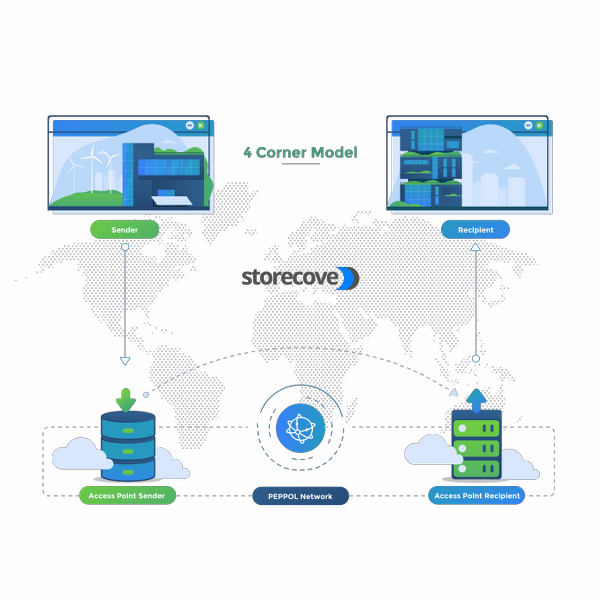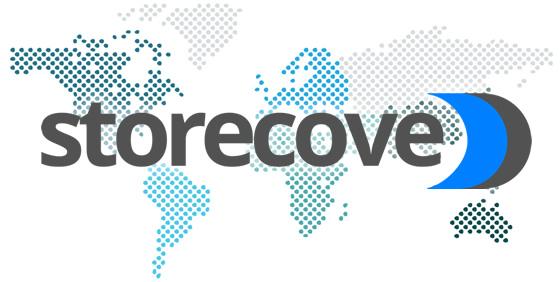The Mercurius platform is used in Belgium to handle electronic invoicing from businesses to government agencies, while PEPPOL is the framework that provides standard formats for issuing e-invoices. E-invoices and credit notes must be in the PEPPOL BIS 3.0 document format to be exchanged over the Mercurius platform.
The Belgian government chose the PEPPOL interoperability model. Later on April 1, 2016, they began integrating PEPPOL into the Mercurius platform. To connect to the PEPPOL network, you must use an approved third party or a provider accredited as a PEPPOL Access Point.
This article will explain the relationship between PEPPOL and the Mercurius platform and the benefits users enjoy from them.
What is PEPPOL e-invoicing in Belgium?
PEPPOL is a framework that provides guidelines to make the order-to-cash and purchase-to-pay processes between government agencies and vendors straightforward. It facilitates standard formats when ordering, billing, and shipping between government and commercial sector businesses.
The framework was created by the European Union (EU) to make public e-procurement more widely available. In other words, the goal is to enable paperless commercial transactions between government agencies and their vendors, including invoicing.
PEPPOL isn't a substitute for current systems for e-procurement or e-invoicing. It is a collection of open technical specifications that allow connected parties to communicate and share invoices more efficiently.
Users access the PEPPOL network through a PEPPOL access point, often provided by an e-invoicing or e-procurement solution provider.
The PEPPOL project began in 2008. Its goal was to identify the obstacles to the widespread adoption of e-procurement, including e-invoicing, and develop solutions to overcome them.
In 2011, the EU finished the project and delivered an interoperability framework. This approach has been applied in various countries since 2012, and Belgium was the sixth country to join in 2016.
Each country establishes a PEPPOL Authority (PA) responsible for effectively applying the interoperability framework inside its borders. It also contributes to the framework's consolidation and the ongoing evolution of its components.
Delivering electronic bills that meet PEPPOL criteria may appear overwhelming at first, but it is pretty simple.
Using an outsourced e-invoicing solution provider like Storecove allows for maximum delivery format flexibility while also meeting PEPPOL regulations.

Is PEPPOL mandatory in Belgium?
Since 2019, all enterprises sending invoices to public sector institutions in Belgium have been required to transmit them as e-invoices using Mercurius, the official government portal. The invoices are distributed using the PEPPOL network.
Suppliers with a limited amount of invoices can manually enter their invoices into Mercurius and transmit them to government agencies.
Users must create the electronic PEPPOL-UBL data format and connect to a PEPPOL access point to transfer many invoices.
Larger firms should consider a professional solution provider with various e-invoicing requirements.
What is the Mercurius platform?
Mercurius is a contracting authority's computerized central mailroom. It is ideally matched with the PEPPOL interoperability framework and ensures a consistent interface for electronic invoicing from businesses to government agencies at all levels.
Because all procurers are invoice recipients on Mercurius, there is a large-scale and uniform exchange of intersectoral electronic invoicing. The government thereby generates leverage for the widespread adoption of electronic invoicing.
Mercury is thus the third component of the Belgian effort to extend e-invoicing after the European Standard and the PEPPOL framework.
Belgian procurers can use this portal to:
- Receive and process e-invoices for free
- Take their time learning computerized invoicing
- And make suitable investments to change their systems by planning and implementing them
Mercurius has a portal that is similar to a "track-and-trace" system. It allows each firm and contractual party to track and trace the handling and processing of electronic invoices that interest them.
Mercurius also provides a temporary solution for businesses that do not have the necessary IT equipment to send e-invoices. Such companies can easily offer goods or services to companies that only accept e-invoices.
How to send an invoice to the Mercurius platform?
All you need is the government agency's firm registration number or GLN (Global Location Number) number, as well as the department's PO (Post Office) number and an account with your access point service provider.
The manual invoice form on the Mercurius platform is the most basic approach for transmitting structured e-invoices and credit notes.
This method is prevalent among vendors who do not presently have EDI structures or receive many orders from government agencies. Other businesses avoid using this strategy due to the human labor required.
PEPPOL users can integrate Storecove’s API (Application Programming Interface) into their ERP to receive and send invoices to the Mercurius portal in the PEPPOL format.

Why PEPPOL E-invoicing in Belgium?
PEPPOL demonstrates the political commitment to allowing small and medium-sized firms or SMEs access to public tenders inside the (EU). It strengthens European competitiveness, recognizing that small SMEs do not often have branches and sites distributed across Europe.
PEPPOL aspires to open the road for digital, pan-European commercial transactions.
Below are some of the advantages users in Belgium get to enjoy.
Increased automation
PEPPOL e-invoicing provides data directly to the access point of the recipient, eliminating the need for manual re-entry. Accounting employees can focus on other high-value activities with a lighter workload.
Before being filed, paper or PDF invoices must be sorted and entered into the accounting system. Re-entry is a time-consuming and error-prone process.
Standardized format
A standardized e-invoicing format is a common language that allows parties who don't speak the same language to communicate more efficiently. Businesses can adapt their programs only once, thanks to standardization.
On the other hand, other formats are not prohibited: any corporation can use the format(s) of its choice.
A register allows any invoicing software to review the list of formats that each correspondent can receive and process inside the PEPPOL framework.
Cost reduction
PEPPOL aims to lower the costs associated with paper-based billing systems. There are no costs associated with the network, such as postage, shipping, envelopes, and ink.
The cost of traditional invoicing methods is high. Creating, processing, and sending a paper invoice takes a lot of time and effort.
Access Points (AP)
Access Points are made up of computer applications that operate as virtual mailboxes. They enable any company to send and receive invoices, regardless of platform. All they need to do is to adhere to PEPPOL's common standard.
Business owners can rest sure that PEPPOL will deliver their bills correctly thanks to these access points.
In Europe, there are roughly 300 PEPPOL-certified access point operators.
All of these operators are technically capable of providing this service to any correspondent. On the Belgian market, there are roughly thirty commercial operators.
Quick and easy implementation
PEPPOL makes it easier for trading partners to access and approve invoices. As a result, you will receive timely payment and have an improved cash flow.
A paper invoice requires the recipient to sort, rearrange, and submit for payment. The procedure is both time-consuming and demanding. There is also the chance of bills going missing.
Framework agreements
Technically, exchanges are possible thanks to the agreed format and access points. PEPPOL has established framework agreements to ensure that they are always legally valid, regardless of the operators involved.
Legal ambiguity, after all, is an unacceptably high risk for most businesses. Platform operators sign the same PEPPOL-style framework agreements. Even beyond the confines of their own platform, these agreements ensure the legal security of exchanges.
Get started on PEPPOL with Storecove
To integrate PEPPOL into your invoicing system, you must first contact an approved and reputable access point provider.
Storecove is a certified PEPPOL Access Point provider with world-class e-invoicing solutions. We'll assist you in setting up PEPPOL connections with your trading partners and converting your e-invoices to the format requested by your recipients.
Through PEPPOL, we hope to make it easier for trading partners to safely and effectively exchange e-invoices.

More information about PEPPOL Mercurius in Belgium
Contact us for more information or schedule a consult with one of our e-invoicing experts.
Read also:

Comments